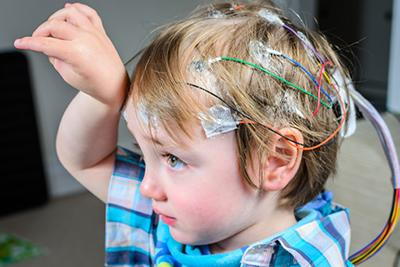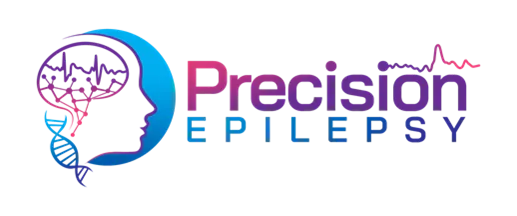What Are the Different Types of Seizures?

- posted: Mar. 10, 2024
What are the Different Types of Seizures?
Seizures can be an unnerving experience, especially if you observe your child having one. Determining the type of seizure can be helpful to develop treatment. Dr. John Millichap at Precision Epilepsy, based in Chicago, IL, is a pediatric neurologist and epileptologist who offers convenient telehealth appointments and consultations to treat a wide range of epilepsy conditions, including seizures.
What You Need To Know About Seizures
So, what is a seizure? A seizure is defined by the International League Against Epilepsy or ILAE, as “a transient occurrence of signs and/or symptoms due to abnormal excessive or synchronous neuronal activity in the brain.”
Seizures are grouped into different types, classified by characteristics and where the seizures originate in the brain. The types are:
Focal onset, which involve abnormal electrical function in one or more areas on one side of the brain. A child may be aware or have impaired awareness of having a seizure. Common signs of this type of seizure include your child experiencing:
- An aura, or signal that a seizure is going to happen
- Changes in vision, hearing, or smell
Generalized onset, which involves both sides of the brain. Generalized seizures include petit mal or absence seizures, atonic seizures, tonic-clonic seizures, and myoclonic seizures, and epileptic spasms. Common signs of this type of seizure include:
- Brief loss of consciousness
- Staring or eye blinking
- Facial or mouth twitching
- Loss of muscle tone
- Sudden dropping of the head
- Flexing of the arms and legs
- Tremors
- Contraction and relaxation of muscles
- Headache and bodyaches
Unknown onset, which are seizures of unknown origin within the brain. Seizures of this type can happen when asleep, or alone, or the seizure was not observed by anyone.
One of the most common causes of seizures is epilepsy, a medical condition. There are several additional causes of seizures, including:
- A chemical imbalance in the brain
- A brain tumor
- Brain damage due to an illness or injury
Diagnostic imaging including an EEG and CT scan may be indicated to diagnose which type and location of seizure your child is having. Your epileptic specialist may recommend anti-seizure medications and nerve stimulation. In severe cases, surgery may be indicated to reduce or eliminate seizures.
Want To Know More?
To find out more about types of seizures and how your pediatric neurologist and epileptologist can help, call Dr. John Millichap at Precision Epilepsy, in Chicago, IL, offering telehealth services across several states. You can reach him by calling (833) 530-3034, so call today. Visit our website to see which states are currently served.

- posted: Mar. 10, 2024
What are the Different Types of Seizures?
Seizures can be an unnerving experience, especially if you observe your child having one. Determining the type of seizure can be helpful to develop treatment. Dr. John Millichap at Precision Epilepsy, based in Chicago, IL, is a pediatric neurologist and epileptologist who offers convenient telehealth appointments and consultations to treat a wide range of epilepsy conditions, including seizures.
What You Need To Know About Seizures
So, what is a seizure? A seizure is defined by the International League Against Epilepsy or ILAE, as “a transient occurrence of signs and/or symptoms due to abnormal excessive or synchronous neuronal activity in the brain.”
Seizures are grouped into different types, classified by characteristics and where the seizures originate in the brain. The types are:
Focal onset, which involve abnormal electrical function in one or more areas on one side of the brain. A child may be aware or have impaired awareness of having a seizure. Common signs of this type of seizure include your child experiencing:
- An aura, or signal that a seizure is going to happen
- Changes in vision, hearing, or smell
Generalized onset, which involves both sides of the brain. Generalized seizures include petit mal or absence seizures, atonic seizures, tonic-clonic seizures, and myoclonic seizures, and epileptic spasms. Common signs of this type of seizure include:
- Brief loss of consciousness
- Staring or eye blinking
- Facial or mouth twitching
- Loss of muscle tone
- Sudden dropping of the head
- Flexing of the arms and legs
- Tremors
- Contraction and relaxation of muscles
- Headache and bodyaches
Unknown onset, which are seizures of unknown origin within the brain. Seizures of this type can happen when asleep, or alone, or the seizure was not observed by anyone.
One of the most common causes of seizures is epilepsy, a medical condition. There are several additional causes of seizures, including:
- A chemical imbalance in the brain
- A brain tumor
- Brain damage due to an illness or injury
Diagnostic imaging including an EEG and CT scan may be indicated to diagnose which type and location of seizure your child is having. Your epileptic specialist may recommend anti-seizure medications and nerve stimulation. In severe cases, surgery may be indicated to reduce or eliminate seizures.
Want To Know More?
To find out more about types of seizures and how your pediatric neurologist and epileptologist can help, call Dr. John Millichap at Precision Epilepsy, in Chicago, IL, offering telehealth services across several states. You can reach him by calling (833) 530-3034, so call today. Visit our website to see which states are currently served.
